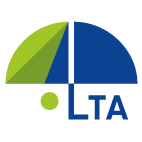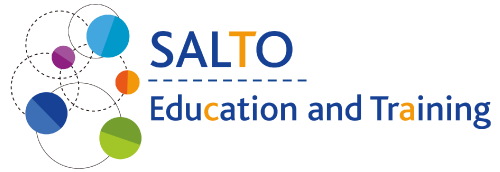Study Visit: Digital Pedagogy and AI – Best Practices from Estonia and Finland

Main Info
TCA Description
This four-day study visit explores how artificial intelligence (AI) can be meaningfully applied in teaching and learning in both general education (SCH) and vocational education and training (VET). The programme is grounded in digital pedagogy — teaching and learning practices that use digital tools such as AI to support pedagogical goals, strengthen digital competences, and critically address opportunities and risks in a digital society.
The focus is on concrete practices: how AI supports learning, develops learners’ competences, and reshapes the work of teachers and institutions.
Participants will visit schools, VET institutions and other related institutions in Estonia and Finland and take part in workshops and peer discussions on practices, challenges, and opportunities in digital pedagogy and AI.
The study visit will explore the following topics:
- Digital Pedagogy – Conceptualising digital pedagogy, examining challenges in digital education, and exploring digital pedagogy as a solution.
- AI Literacy and National Frameworks – Defining AI’s role and limits in education, fostering critical thinking, and learning from national strategies such as Finland’s AI guidelines.
- Future of Teaching – Preparing and supporting teachers through initial education, professional development, and institutional approaches.
- Generative AI in Practice – Practical applications of generative AI in teaching and learning, with lessons from Estonia’s AI Leap initiative.
- Future Skills and Competences – Identifying the skills needed in the AI era and exploring the Union of Skills as a framework for emerging competences and how education and training can adapt.
This study visit is part of the LTA 2025-2027 Digital Pedagogy in the Age of AI.
By the end of the study visit, participants will:
- develop a clearer understanding of how AI and digital pedagogy can be used in education,
- reflect on how digital tools and AI affect learning and teaching from different perspectives,
- strengthen their knowledge of digital competences relevant for both teachers and learners,
- gather ideas and tools that can be adapted to their own institutional context,
- exchange experiences and practices with colleagues from other countries,
- build networks and work together on shared challenges related to digital pedagogy and AI.
Programme overview:
10.02 — Arrival & opening in Tallinn (registration 15:30; sessions 16:00–17:30; dinner 19:00).
11.02 — SCH & VET visits in Tallinn (visits 09:30–15:00; joint sessions 15:30–17:00; dinner 19:00).
12.02 — Finnish perspective in Helsinki (ferry 10:30; lunch; SCH and VET sessions 13:45 - 15:00; visits 16:00–17:30; ferry back 19:30–22:00; dinner onboard).
13.02 — Final day in Tallinn (joint session; SCH/VET group work; final reflections; lunch & departures at 13:30).
Please find more detailed programme under 'Files'.
Partners and participants
Staff from school education (SCH) and vocational education and training (VET), who work with learners from lower and upper secondary level (Grade 7 and up) and VET, and meet at least one of the following criteria:
- hold leadership or strategic roles (e.g. school heads, education managers, deputy heads/vice-principals, digital coordinators, pedagogical leaders, innovation managers);
- are involved in shaping institutional strategies for digital transformation and AI integration;
- have prior experience with digital pedagogy, educational technology, or AI tools in teaching, learning, or school management.
Pending booked places
Accepted places
TCA Participant Application
Long-term Activity Info
The aim of the LTA "Digital Pedagogy in the Age of AI" is to support the development of digital competences and the purposeful and methodical use of digital tools, learning materials, and content in teaching and learning within the School Education (SCH) and Vocational Education and Training (VET) sectors. Additionally, with the rapid development of artificial intelligence (AI) and digital technologies, this LTA seeks to equip education leaders and teachers in SCH and VET with the knowledge and skills to integrate AI-driven solution effectively and ethically into teaching and learning. Building on previous LTAs, this initiative seeks to create a structured, evidence-driven approach to digital pedagogy and AI in quality TCAs through strong collaboration among participating National Agencies (NAs).
On the SCH and VET sector level:
Raising awareness and fostering digital competences among educators remains a challenge, as individualized learning pathways require tailored support. The development and sustainability of a high-quality digital education ecosystem need stronger leadership and systemic transformation efforts in SCH and VET institutions. It is critical to address the gap in digital skills and access to technology to ensure equal learning opportunities, but it is equally important to acknowledge that institutions or local governments may not have the resources needed for closing these gaps. Additionally, ensuring digital well-being and tackling disinformation remain ongoing sector-wide concerns.
On LTA management level:
Foster stronger cooperation among National Agencies to drive digital transition within Erasmus+. Enhance collaboration among participating NAs to effectively leverage existing research and resources, improve coordination in organizing TCAs.
In 2025:
12-14 March – a face-to-face partners’ kick-off meeting in Tallinn.
A desk research analysis of the current state of digital pedagogy and AI in Erasmus+ programs, utilizing various data sources—including the three existing Long-Term Activities (LTAs)—to assess their findings and document best practices within Erasmus+ and other national programs.
10-12 December – Thematic seminar on Blended Mobility for SCH and VET KA1 Beneficiaries. How to seamlessly combine physical mobility and virtual learning for a more impactful learning experience. Learning from best practices.
Activities 2026-2027: dissemination of research results, webinars in cooperation with eTwinning and EITA, 8 TCAs and a final conference.
- Improved quality of Erasmus+ projects on digital pedagogy and AI.
- Mainstreaming of best practices in digital pedagogy and AI and wider use of Erasmus+ project results.
- Insights from a comprehensive analysis of digital pedagogy and AI in Erasmus+ programs inform best practices and guide future improvements across initiatives.
- Targeted support for National Agencies through TCAs, focusing on capacity building, resource sharing, and practical guidance.
- Stronger collaboration among participating National Agencies to effectively leverage existing research and resources, improve coordination in organizing TCAs.


